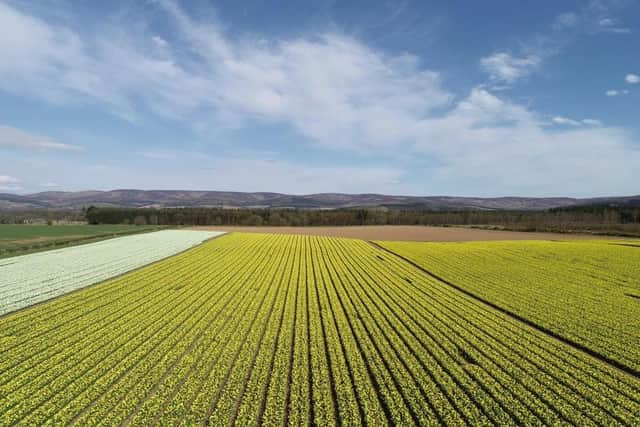Scottish farming co-ops back project to tackle daffodil and potato parasites
Backed in Scotland by Grampian Growers and Scottish Agronomy, alongside the James Hutton Institute, Harper Adams University and HL Hutchinson, the three-year research project is looking at sustainable ways to effectively suppress pests and pathogens using “cover crops”.
The UK produces the largest volume of narcissus in the world, with the vast percentage concentrated in Devon, Cornwall, Lincolnshire, the Isles of Scilly, Jersey and Scotland. In Scotland, daffodil production is mostly focused on the east coast.
Advertisement
Hide AdAdvertisement
Hide AdAnnually, Grampian Growers exports 4,000 tonnes of daffodil bulbs and crops 60 million stems of flowers, with flower production split 60/40 export to UK retail.


Eric Anderson, senior agronomist at Scottish Agronomy, said: “Plant-parasitc nemotodes are microscopic and difficult to control because they live underground or inside of plants. They can seriously damage or even kill crops, but there is no widely available varietal resistance and only limited agrochemical options to treat the nematodes infecting narcissi, some of which are facing an uncertain future.
“Here in Scotland, we are seeing a rapid rise in land infected by plant parasitic nematodes, posing a very real threat to growers. Through this project we are looking for the most robust alternative solutions to secure the future of the bulb and potato growing industry.”
Field experiments are currently underway at Grampian Growers’ sites near Montrose.
Managing director Mark Clark said: “The market is increasingly competitive and it’s essential that our yields and quality remain strong. The demand for nematode-free land for bulb and potato production at Grampian Growers becomes higher and more difficult each year.
“We are excited to see this research get underway and to be working with such a strong representation from the industry. We look forward to seeing the results and how we can integrate different measures to strengthen the work we are doing.”
Vongai Chekanai, a PhD student who is leading the research in Scotland, as well as carrying out experiments in England and the Isles of Scilly, added: ““Performance is dependent on a variety of agronomic factors which we will be exploring.”
A message from the Editor:
Thank you for reading this article. We’re more reliant on your support than ever as the shift in consumer habits brought about by coronavirus impacts our advertisers. If you haven’t already, please consider supporting our trusted, fact-checked journalism by taking out a digital subscription: www.scotsman.com/subscriptions
Comments
Want to join the conversation? Please or to comment on this article.